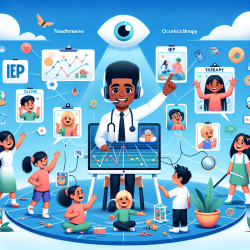The landscape of child health is evolving, particularly in how we understand and address childhood neurodisability. Recent research highlights the importance of differentiating between "disease" and "disability" perspectives in child health, offering valuable insights for practitioners aiming to enhance their skills and improve outcomes for children with neurodisabilities.
The Distinct Perspectives of Disease and Disability
The research article "Perspectives on 'Disease' and 'Disability' in Child Health: The Case of Childhood Neurodisability" emphasizes the need for a balanced approach that considers both disease and disability perspectives. This approach is crucial for effective clinical services, research, policy-making, and professional education.
The World Health Organization’s International Classification of Functioning, Disability and Health (ICF) provides a framework that distinguishes between health conditions (diseases) and disabilities. It underscores that disabilities are not inherent to individuals but result from interactions between health conditions and contextual factors.
Implementing Research Insights in Practice
Practitioners can enhance their practice by integrating the following strategies based on the research findings:
- Adopt a Holistic Approach: Move beyond a purely biomedical model by considering the functional abilities and contextual factors affecting each child. This holistic view aligns with the ICF framework and can lead to more tailored interventions.
- Diversify Assessment Methods: Use both diagnostic tools and functional assessments to gain a comprehensive understanding of a child's needs. This dual approach helps in formulating effective intervention plans that address both medical and functional aspects.
- Focus on Functional Outcomes: Emphasize interventions that improve daily functioning and participation in meaningful activities, rather than solely aiming for medical treatment or cure.
- Engage Families: Involve families in the planning and implementation of interventions. Their insights are invaluable in creating supportive environments that foster development.
The Role of Further Research
The research encourages practitioners to engage in further study to deepen their understanding of how disease and disability perspectives can be applied across various contexts. By staying informed through continuous learning, practitioners can better navigate the complexities of childhood neurodisability.










